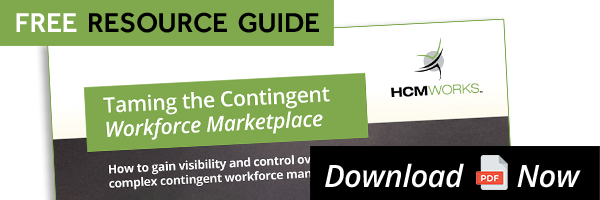We've spoken many times in our previous blogs, about the very strategic role contingent labor is playing in the development of the new economy and the profound changes to the structure of the corporate workforce.
In this blog we'll look at contingent labor from another angle - it's critical role with innovation.
As innovation and growth have become a big part of our government's business agenda, new technologies, the rise of new industries, and indeed new job structures, have all changed and moved us into a so-called 'gig economy', 'on-demand economy', or 'shared economy'. But all of this is really related to the growth of the innovation economy, of which flexible workers are a big part.
There are those workers who have found new job flexibility and have combined it with the ability to monetize their existing assets, like their cars and rooms in their homes. And there are workers who are thriving as 'free agents' on a contingent basis (e.g., independent contractors, temporary employees, freelancers), and this includes a substantial number of people working directly in areas of innovation.
How do contingent workers contribute to innovation?
Innovation can create long-lasting advantages and produce dramatic shifts in competitive position for companies, therefore innovation is increasingly being managed in an agile and flexible fashion.
The use of contingent workers allows companies to manage the size and composition of their workforce with greater dexterity and agility in meeting the ebb and flow of work demand resulting from projects and cyclical activities (Bergstrom, 2001). In addition, contingent workers allow companies to access critical expertise and special skills that can contribute to a developing innovation program, adding to the knowledge base of their regular employees.
In some cases, contingent workers, who are more mature and experienced professionals, may find themselves to be subject matter authorities in their respective area of innovation and specifically may provide special technical assistance to companies on innovation projects in which they are highly experienced. This means a company can grow its innovation program faster and, in some cases, rather than receiving leadership and direction from the company, these contingent workers (serving as senior consultants) may be asked to provide technical leadership in key aspects of projects.
How can we improve contingent worker innovation performance?
To help with the overall performance of contingent workers in the innovation sector, it has been shown that leading innovation projects can help project commitment, effort, and results, especially when contingent workers:
- Are afforded an appropriate onboarding and orientation process
- Are properly integrated into their work team
- Receive fair, dignified treatment and open communication
- Are provided with development and training opportunities appropriate to the level and duration of their work, which may further improve their work performance in the project they have been engaged for
- Are made to feel respected and appreciated for their talents and the quality of their work.
Innovation management research shows there is no clear-cut relationship between employment flexibility and innovative performance, but more innovative companies who have long-term R&D projects and proven innovation performance, aim for long-term and more secure contractor relationships, develop strong R&D project teams, and like to develop a long-term pool of qualified contingent workers.
For more information about contingent workers and how you can include them in your innovation management disposition, please contact us and one of our knowledgeable Contingent Workforce Solutions Specialists will be more than happy to assist you.
About HCMWorks
We are a contingent workforce service provider helping organizations gain better access to talent through the use of independent contractors, consultants, temporary workers, freelancers and other non-payrolled employees. We provide the expertise, the technology, and processes to help you reduce your workforce costs, mitigate against misclassification and co-employment risks, and increase the efficiency and timeliness of your contingent recruitment process. Read more about what our clients say about us here.



